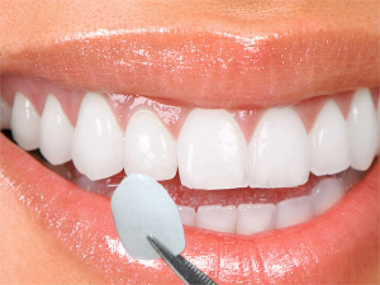After searching for three weeks, I found an affordable dentist to treat me for gum disease. I had called several offices, and their fees were too high. Although I have dental insurance, most fees exceed my budget, so I selected my current dentist. My concern is that in June of this year, it will be 2 1/2 years since treatment started. I go for a deep cleaning about every four months, and I still notice that my gums bleed when I brush my teeth, and some of my teeth are still a little loose. My dentist doesn’t think it is cause for concern.
The situation is a little better, but I still don’t think I made the right choice. I have two missing teeth and need porcelain veneers for two chipped teeth. We were waiting until the gum disease was under control to take care of the issues with my teeth, but I’m beginning to think it will take another two years to complete my treatment. Was it a mistake to choose a dentist with low fees just to get treatment? I’m concerned that I will have to go into debt to get the care I need. Thanks. Kristina from Saginaw, MI
Kristina -Thank you for contacting Dr. Szarek’s office.
The length and frequency of your treatment suggest that although your dentist is making treatment affordable for you, he might not be able to resolve your periodontal disease.
Can I Get Porcelain Veneers or Dental Implants with Gum Disease?
Your gums must be healthy before a dentist places porcelain veneers or dental implants.
- Porcelain veneers – Custom-made shells of porcelain are made to fit the fronts of your teeth. Your gum tissue will frame the veneers like natural teeth. Bleeding and inflamed gums will worsen with porcelain veneers.
- Dental implants – Healthy gums and bone support dental implants and keep them stable. Unhealthy gum tissue can prevent your dental implants from healing.
Gum Disease Signs and Symptoms
The signs and symptoms of gum disease include:
- Bleeding, sore, and inflamed gums
- Infected or inflamed gums
- Gum recession
- Gum tissue separates from teeth
- Loose teeth
- Chronic bad breaths
If you are experiencing the signs and symptoms, they must be controlled before you get cosmetic dentistry treatment or dental implants.
What Can You Do If Gum Disease Will Not Go Away?
If you are still experiencing discomfort and some of the signs and symptoms of gum disease after a series of deep cleanings, it is time to ask your dentist for a referral to a periodontist (gum specialist). If your dentist is unwilling to refer you to a specialist, you can self-refer if your dental insurance allows it or get a second opinion.
Does Affordable Treatment Result in Low-Quality Care?
Drastically lower fees may indicate that a dentist takes shortcuts or lacks the skills or experience to resolve specific issues. Still, even dentists with high prices can provide inadequate treatment if they don’t have expertise in an area.

You need healthy gums for porcelain veneers
We recommend getting a second opinion. A conscientious dentist will let you know if they can resolve the issues with your gums. If not, the dentist will refer you to a periodontist—a specialist in diagnosing and treating problems with your gums.
Find a dentist who will provide care yet work with your budget. But look for dentists with advanced training in treating periodontal (gum disease). There are several ways a dentist can make care affordable for you, including:
- Completing dental work in phases whenever possible
- Offering payment plans
- Offering financing options
The condition of your teeth and your gums are closely related. After your gum disease is controlled, a cosmetic dentist can let you know your options for improving the appearance of your smile with porcelain veneers and dental implants. For now, it’s crucial to get a second opinion. Remember to check with your dental insurance company for dentists and periodontists within the network. It will help you avoid unnecessary out-of-pocket costs.
Lowell, Massachusetts, accredited cosmetic dentist Dr. Michael Szarek sponsors this post.
